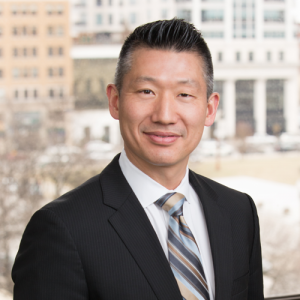The legality and use of medical marijuana has been changing rapidly over the last decade. The rules for prescribing medical marijuana vary under state law, but the sale, possession, production and distribution of marijuana, or the facilitation of these crimes, remains illegal under U.S. federal law. This landscape creates uncertainty for many physicians but particularly for foreign-born physicians who also face potential immigration consequences connected to medical marijuana.
Overview
The scenario in question would go something like this: A foreign-born physician would like to prescribe medical marijuana for the benefit of his patients. Medical marijuana is legal in the state where he is licensed and his U.S. born colleagues regularly prescribe medical marijuana in their practices. If the foreign-born physician decides to prescribe marijuana to his patient, could there be any immigration consequences?
Potentially, yes. Under federal law, prescribing medical marijuana may qualify as a grounds of inadmissibility. The grounds of inadmissibility for controlled substance violations are found in INA 212(a)(2). Individuals who are inadmissible are not permitted by law to enter or remain in the United States.
While this physician is acting legally under his state’s laws, he is acting in violation of federal statutes. As such, he is likely subject to the grounds of inadmissibility for controlled substance violations. The statute renders inadmissible “any alien convicted of, or who admits having committed, or who admits to committing acts which constitute essential elements of…a violation of (or a conspiracy or attempt to violate) any law or regulation of a State, the United States or a foreign country relating to a controlled substance.” The physician would not need to be convicted of an offense but may be seen as admitting to committing the offense if asked about controlled substances in an adjustment of status or visa interview. In general, 212(a)(2) inadmissibility is given for life, making it a particularly dangerous inadmissibility ground.
Related to this issue, Customs and Border Protection (“CBP”) has recently clarified its position regarding the admissibility of Canadians who work in the newly legalized marijuana industry. A spokesperson for CBP said, “Working or having involvement in the legal marijuana industry in U.S. states where it is deemed legal or Canada may affect an individual’s admissibility to the U.S.” The official CPB statement indicates that, “Although medical and recreational marijuana may be legal in some U.S. states and Canada, the sale, possession, production and distribution of marijuana or the facilitation of the aforementioned remain illegal under U.S. Federal Law. Consequently, crossing the border or arriving at a U.S. port of entry in violation of this law may result in denied admission, seizure, fines and apprehension.”
Practical Takeaways
Until there is further guidance from USCIS or CBP, we recommend that foreign-born physicians refrain from prescribing medical marijuana even in states where it is clearly legal under state law. Employers should be aware of these risks to foreign-born physicians and work with their staff to mitigate them.
For more information, please contact:
- Michael Kim at (317) 977-1418 or mkim@wp.hallrender.com;
- Lindsay Ramsey at (317) 429-3637 or lramsey@wp.hallrender.com;
- Charlotte Fillenwarth at (317) 977-1476 or cfillenwarth@wp.hallrender.com;
- Grace Shelton at (317) 429-3620 or gshelton@wp.hallrender.com; or
- Your regular Hall Render attorney.



